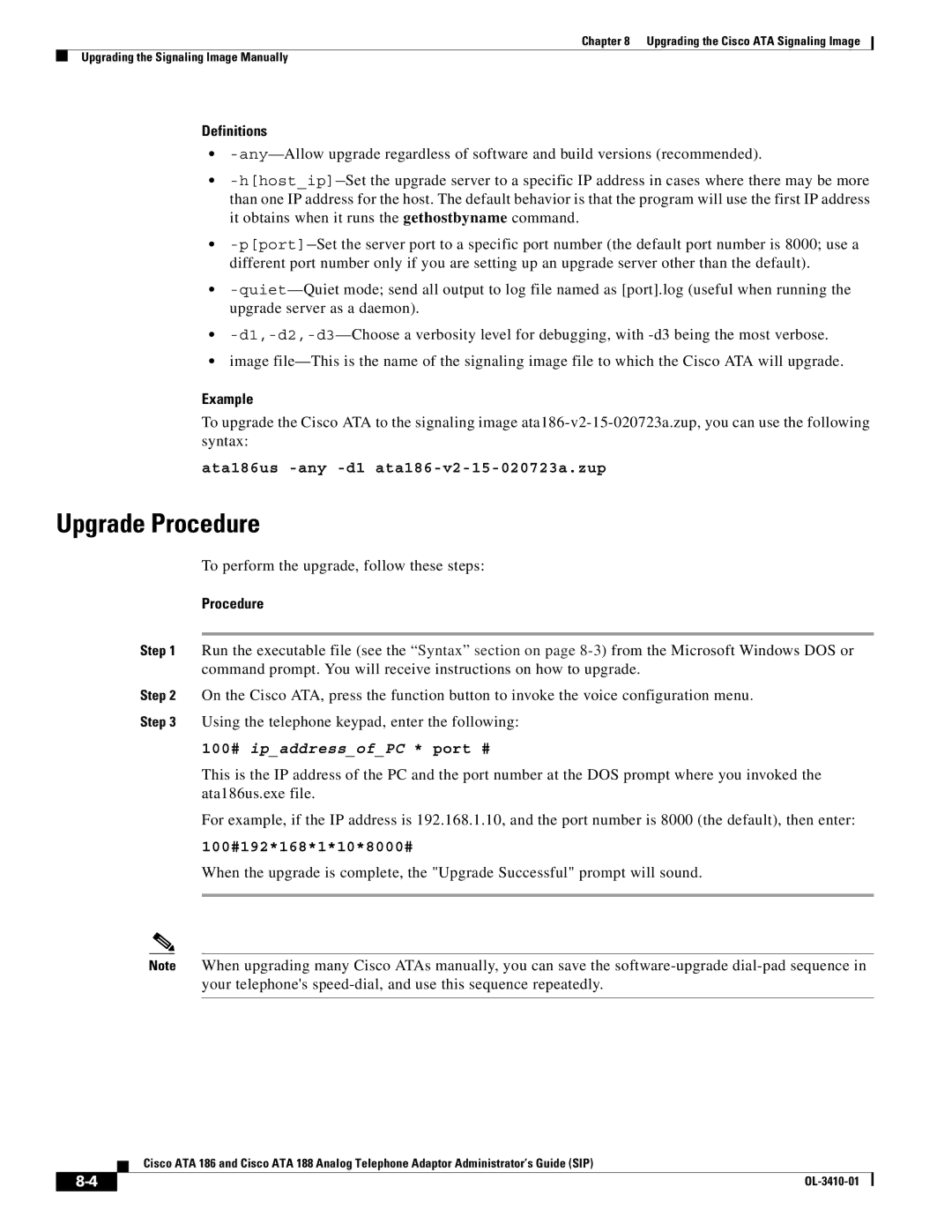Chapter 8 Upgrading the Cisco ATA Signaling Image
Upgrading the Signaling Image Manually
Definitions
•-any—Allow upgrade regardless of software and build versions (recommended).
•-h[host_ip]—Set the upgrade server to a specific IP address in cases where there may be more than one IP address for the host. The default behavior is that the program will use the first IP address it obtains when it runs the gethostbyname command.
•-p[port]—Set the server port to a specific port number (the default port number is 8000; use a different port number only if you are setting up an upgrade server other than the default).
•-quiet—Quiet mode; send all output to log file named as [port].log (useful when running the upgrade server as a daemon).
•-d1,-d2,-d3—Choose a verbosity level for debugging, with -d3 being the most verbose.
•image file—This is the name of the signaling image file to which the Cisco ATA will upgrade.
Example
To upgrade the Cisco ATA to the signaling image ata186-v2-15-020723a.zup, you can use the following syntax:
ata186us -any -d1 ata186-v2-15-020723a.zup
Upgrade Procedure
To perform the upgrade, follow these steps:
Procedure
Step 1 Run the executable file (see the “Syntax” section on page 8-3) from the Microsoft Windows DOS or command prompt. You will receive instructions on how to upgrade.
Step 2 On the Cisco ATA, press the function button to invoke the voice configuration menu. Step 3 Using the telephone keypad, enter the following:
100# ip_address_of_PC * port #
This is the IP address of the PC and the port number at the DOS prompt where you invoked the ata186us.exe file.
For example, if the IP address is 192.168.1.10, and the port number is 8000 (the default), then enter:
100#192*168*1*10*8000#
When the upgrade is complete, the "Upgrade Successful" prompt will sound.
Note When upgrading many Cisco ATAs manually, you can save the software-upgrade dial-pad sequence in your telephone's speed-dial, and use this sequence repeatedly.
Cisco ATA 186 and Cisco ATA 188 Analog Telephone Adaptor Administrator’s Guide (SIP)

